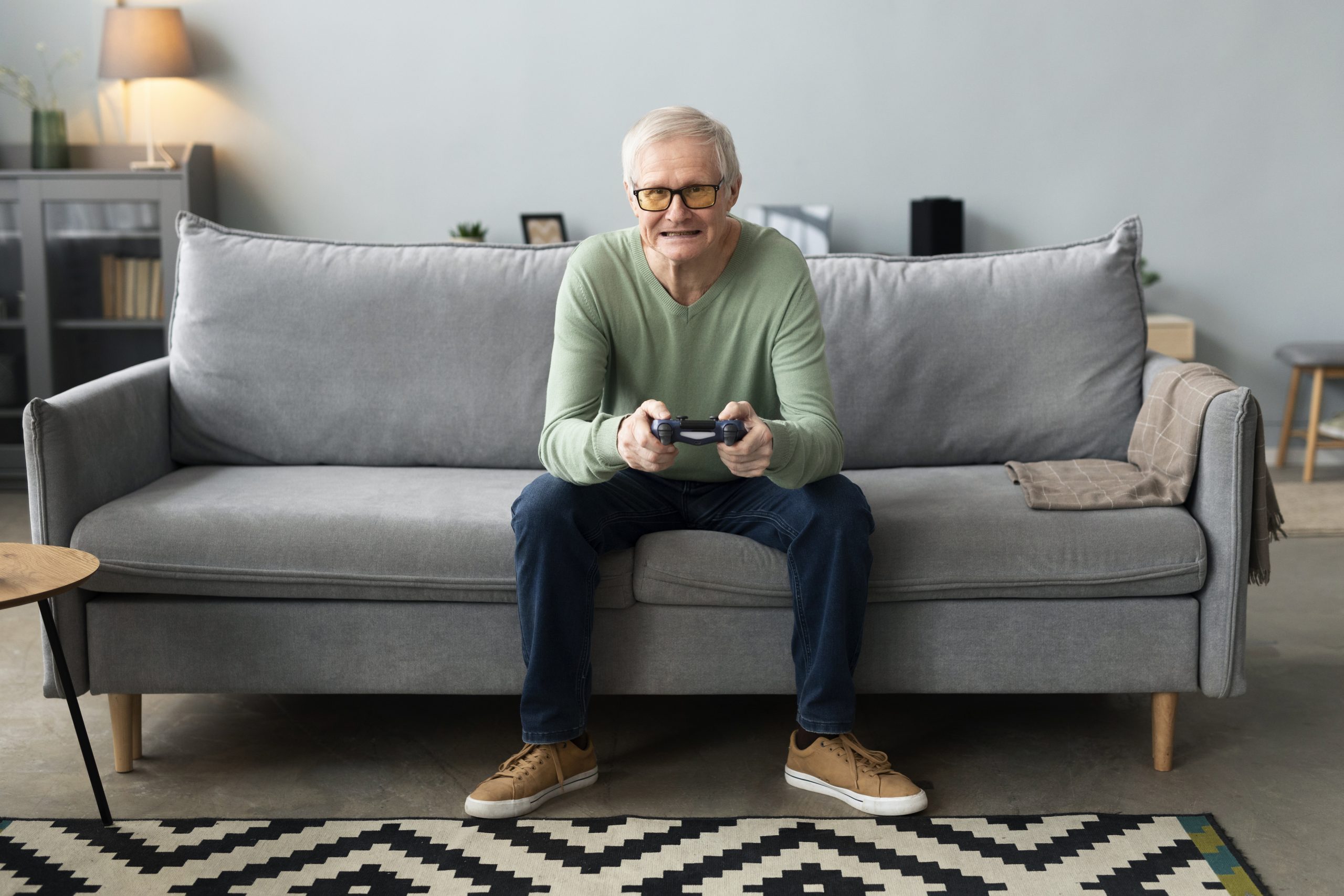

A sock that combines sensors and artificial intelligence could aid caregivers in detecting agitation and preventing falls in dementia patients. The study, led by the UK DRI Care Research and Technology Centre at Imperial College London, is one of several’smart home’ devices being tested to help people with dementia stay in their own homes for as long as possible. The unique ‘Smart Socks’ can track a person’s heart rate, sweat levels, and mobility to provide accurate insight into a person’s cognitive state, and distress levels. They seem and feel like regular socks to the wearer, do not require charging, and are machine washable.
One of the major issues in dementia research is that wearable electronics are generally worn on wrist straps. Because this can create additional stress for those living with dementia and can be removed by patients during study, these socks could give a minimally invasive technique to evaluate people’s cognitive condition.
“Combining the socks with our existing technology will greatly expand our capabilities to monitor, understand and anticipate the needs of people living with dementia.”Dr Shlomi Haar
Dr Shlomi Haar, Emerging Leader at the UK Dementia Research Institute Care Research & Technology Centre and Department of Brain Sciences, said: “I’m really excited about this project, which has the potential to transform care for people affected by dementia. As a world leading centre in developing smart homes for dementia we tried multiple wearable devices but we find the technology is not always suitable or comfortable for people to wear for extended periods. This incredibly innovative technology should resolve this issue, since the socks look and feel exactly like normal socks.
“Combining the socks with our existing technology will greatly expand our capabilities to monitor, understand and anticipate the needs of people living with dementia, and support them to remain safely within their own homes for longer, whilst also reducing the burden on carers.”
Testing the Tech
Milbotix, the care technology business that created the Smart Socks, has collaborated with the Imperial team to evaluate the device. The SmartSocks will be evaluated in the living lab, a household environment where researchers analyze daily activities and create technologies before they can be tested at home, as part of this study. The socks will subsequently be tested in the homes of 15 dementia patients to see if they detect distress or agitation in the wearer.
Imperial College London’s UK DRI Care Research & equipment Centre is already testing equipment that monitors sleep, mobility around the home, and physiological parameters including temperature and blood pressure. A centralized computer platform dubbed ‘Minder’ then connects these metrics to a dashboard, allowing clinicians to remotely monitor dementia patients. Using this technology, the team hopes to spot problems early, decrease unnecessary hospitalizations, and ultimately enable people living with dementia to remain independent in their own homes for longer periods of time.
Researchers will be able to remotely identify when a person’s cognitive state changes with the inclusion of the Smart Socks, which is not achievable with the existing gadgets.
Dr. Zeke Steer, CEO of care-tech start-up Milbotix, developed the SmartSock concept after observing his great grandmother’s dementia journey, during which she became angry and agitated. Dr. Steer left his position in the defense business in order to pursue a PhD in robotics, where he acquired an interest in wearable technologies.
“The foot is actually a great place to collect data about stress, and socks are a familiar piece of clothing that people wear every day, our research shows that the socks can accurately recognise signs of stress.”Dr Zeke SteerCEO, Milbotix.
“I came up with the idea for SmartSocks while volunteering in a dementia care home. The current product is the result of extensive research, consultation and development. So far, our product has been incredibly well-received in care settings, and I’m excited to see what impact our products can have in providing early alerts of agitation and falls, alerting care home staff to take early intervention, and also in supporting people to stay in their own homes for as long as possible.”
Dr Steer said: “The foot is actually a great place to collect data about stress, and socks are a familiar piece of clothing that people wear every day, our research shows that the socks can accurately recognise signs of stress – which could really help not just those with dementia, but their carers too.”
In another research, Milbotix will collaborate with a team from the University of Exeter to see if SmartSocks can help staff in care homes support people who may be unable to talk about their agitation levels or the source of their discomfort.
more recommended stories
 Phage Therapy Study Reveals RNA-Based Infection Control
Phage Therapy Study Reveals RNA-Based Infection ControlKey Takeaways (Quick Summary) Researchers uncovered.
 Safer Allogeneic Stem Cell Transplants with Treg Therapy
Safer Allogeneic Stem Cell Transplants with Treg TherapyA new preclinical study from the.
 AI in Emergency Medicine and Clinician Decision Accuracy
AI in Emergency Medicine and Clinician Decision AccuracyEmergency teams rely on rapid, accurate.
 Innovative AI Boosts Epilepsy Seizure Prediction by 44%
Innovative AI Boosts Epilepsy Seizure Prediction by 44%Transforming Seizure Prediction in Epilepsy Seizure.
 Hypnosis Boosts NIV Tolerance in Respiratory Failure
Hypnosis Boosts NIV Tolerance in Respiratory FailureA New Approach: Hypnosis Improves NIV.
 Bee-Sting Microneedle Patch for Painless Drug Delivery
Bee-Sting Microneedle Patch for Painless Drug DeliveryMicroneedle Patch: A Pain-Free Alternative for.
 AI Reshapes Anticoagulation in Atrial Fibrillation Care
AI Reshapes Anticoagulation in Atrial Fibrillation CareUnderstanding the Challenge of Atrial Fibrillation.
 Hemoglobin as Brain Antioxidant in Neurodegenerative Disease
Hemoglobin as Brain Antioxidant in Neurodegenerative DiseaseUncovering the Brain’s Own Defense Against.
 Global Data Resource for Progressive MS Research (Multiple Sclerosis)
Global Data Resource for Progressive MS Research (Multiple Sclerosis)The International Progressive MS Alliance has.
 AI Diabetes Risk Detection: Early T2D Prediction
AI Diabetes Risk Detection: Early T2D PredictionA new frontier in early diabetes.

Leave a Comment